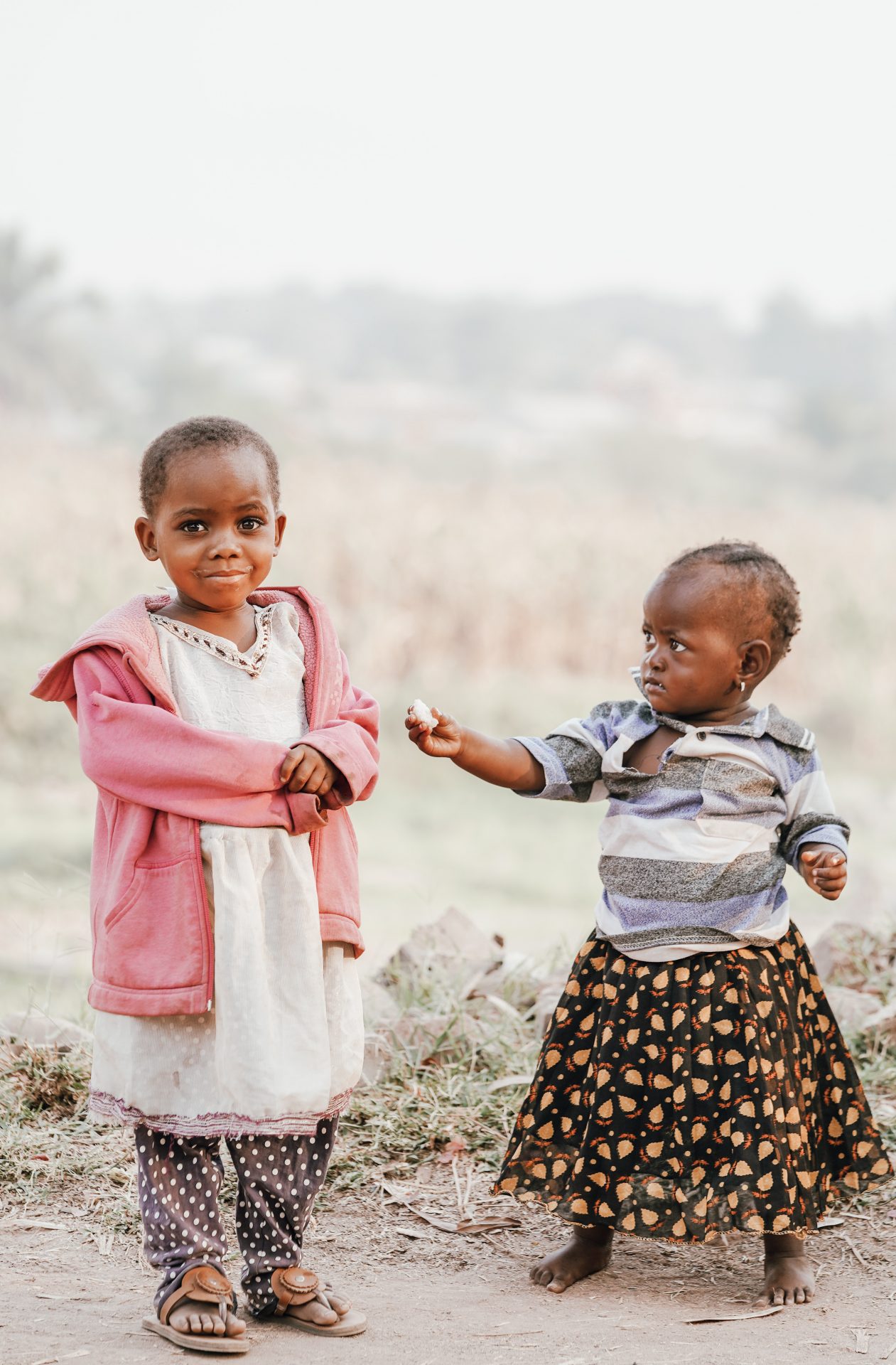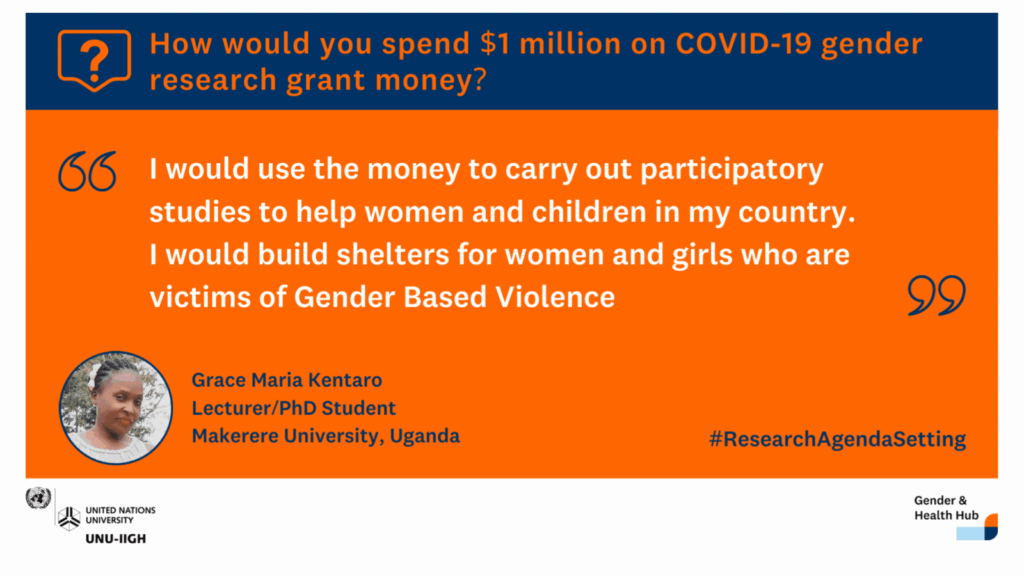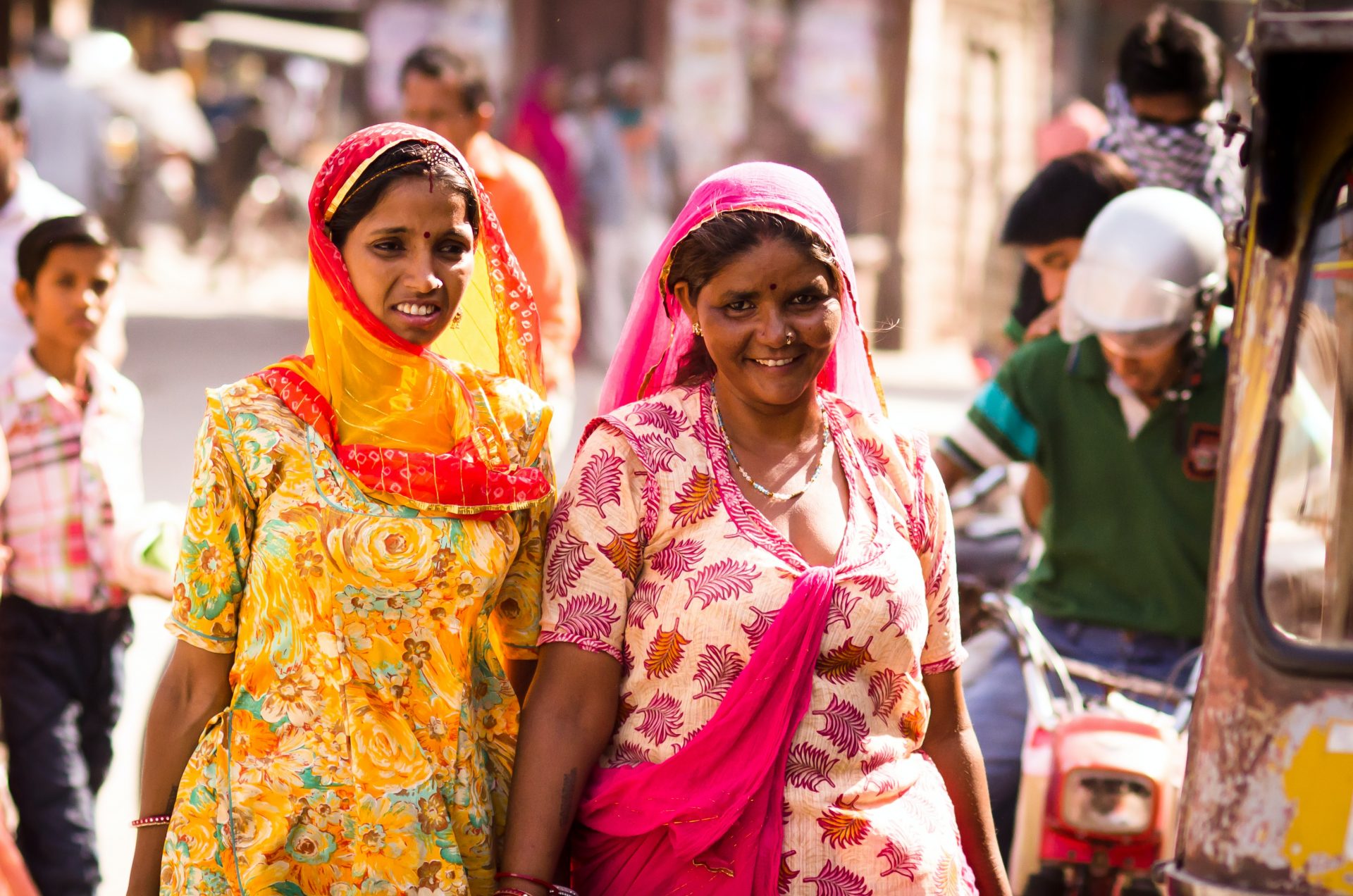- From the start of the COVID-19 pandemic, how it affected and continues to affect women, girls, men, boys, and non-binary gender groups are complex and evolving
- Apart from the direct effects of COVID-19 illness, pandemic responses also amplified existing gender inequalities across multiple dimensions
- To galvanise change by strengthening evidence-informed inclusion of sex and gender in COVID-19 practice, the United Nations University International Institute for Global Health (UNU-IIGH), Malaysia, and the School of Public Health at the University of the Western Cape (SoPH, UWC), South Africa initiated the crowd-sourced and collaborative research agenda-setting process.
To find out more, you can access our policy brief in the following languages:
From the start of the COVID-19 pandemic, how it affected and continues to affect women, girls, men, boys, and non-binary gender groups are complex and evolving. Death and severity of COVID-19 by sex are also influenced by age, obesity, pre-existing conditions, disability status, and occupational exposure, amongst other characteristics and inequities. While men were found to be at higher risk of severe infections and death initially, now Long-COVID affects more women,(1) and also young, low-risk people with active lifestyles.
Women took on higher levels of unpaid care work at home, due to homeschooling or healing loved ones, impacting their own well-being and productivity, amidst changing ways of work, often in lower-paying formal, informal and non-standard (part-time, temporary, gig-based) roles that generally provided lesser access to employer benefits, job security and social protection. (2) Women were also found to be unsafe in their homes, and in their workplaces, even as they served on the front lines of critical pandemic services. (3,4)
Context and the intersecting influence of other social determinants or identities (5,6) also worsened the influence of gender during the pandemic, with combined effects on health. Mental health challenges escalated. (7) Disrupted access to necessary healthcare services led to unintended worse health outcomes.
Early high-level calls and advocacy from researchers (8) such as through the Gender and COVID-19 working group,(9) were made for gender considerations to be integrated in the crisis response. The first wave of guidance was issued by many multilateral organisations based on lessons learnt from Ebola, Zika and other infectious disease outbreaks. Nevertheless, real-time response to the gender dynamics was limited by extensive invisibility of the evolving situation, due to incomplete data systems and evidence gaps. Anecdotal, experience-based and advocacy narratives plugged these data gaps.
Now as the world rushes to ‘return to normal,’ we must continue to spotlight sex and gender as integral to health, and stress sustained multistakeholder action to achieve equity in health. We must heed and implement the lessons learned from the past that saw gross health inequities but also promising feminist approaches to safeguarding, advancing, and sustaining gender equality.

The collaborative and crowd-sourced Research Agenda-setting process aimed to increase the responsiveness and ownership of the evidence generated. This is critical for collectively advancing strategic and evidence-informed COVID-19 actions, including wide-ranging gender interventions at scale within and beyond the health sector.
The United Nations University International Institute for Global Health (UNU-IIGH), the School of Public Health at the University of Western Cape (SOPH-UWC) led this process, anchored in the Global South, and engaged with nearly 900 global participants and yielded a shared people-centred research agenda on sex and intersectional differences and gender equality priorities for COVID-19 and beyond that span advocacy, programming, and policy actions for funders, civil society, implementers, policymakers and researchers.
The process established a model for co-produced feminist and decolonial approaches to global health collaboration, including the use of digital platforms for engagement, inclusive conversation and open consensus-building. It highlighted how crucial regional strategies are in advancing gender and health.
The aims of the research agenda-setting exercise were to:
- Harness current momentum on gender equality to support policy and programming-relevant research and accountability
- Identify a shared and prioritised research agenda and framework for evidence-informed action to address gender and intersectionality in the global health and intersectoral COVID-19 response.
- Facilitate feminist solidarity in understanding, voice, and action from multiple communities of stakeholders.
Responding to recent calls for a feminist-oriented focus (10) and decolonizing processes in global health,(11,12) the research agenda-setting process integrated feminist research values (10,13) and a decolonizing focus (14–16). The process was co-developed through real-time learning, and open calls to a broad range of stakeholders to comment and contribute to the process design, scope and content.
Building on this collaborative effort, a new BMJ collection of articles lays out the shared global research agenda on sex differences and gender equality priorities for the covid-19 response and beyond. The collection provides instructive insights on how a collaborative feminist and decolonial approach can be used to develop the shared global research agenda, including crowdsourcing, use of digital platforms for engagement, inclusive conversations and leadership, and open consensus building.
Engaging multi-stakeholder expertise and emerging voices

Explore our key events and discussions:
- Setting the Agenda for Action | Launch of the Gender & COVID-19 Research Agenda
- Generation Equality Forum Paris 2021: Session “Building a feminist health sector in response to Covid-19”
- Gender & COVID-19 Research Agenda Setting in Asia Pacific: Vaccinations
- Consultation on Gender and COVID-19: Research in Middle East and North Africa
- Thematic Group 1 | Health Status & Behaviour
- Thematic Group 2 | Therapeutics & Diagnostics
- Thematic Group 3 | Health Service Delivery
- Thematic Group 4 | Social Determinants
- Thematic Group 5 | Governance
Each of our lived identities and professional roles as stakeholders in the pandemic response brings unique insights into the pandemic. You can continue to shape the agenda by amplifying our new BMJ Collection. We hope the collection can inform future research investments to shift the power balance towards more inclusive knowledge production and ultimately address intersecting needs and determinants in global health research, especially in times of crisis.

- Sudre CH, Murray B, Varsavsky T, et al. Attributes and predictors of Long-COVID: analysis of COVID cases and their symptoms collected by the Covid Symptoms Study App. Infectious Diseases (except HIV/AIDS), 2020 DOI:10.1101/2020.10.19.20214494.
- Thomason B, Macias‐Alonso I. COVID-19 and raising the value of care. Gend Work Organ 2020; n/a. DOI:10.1111/gwao.12461.
- Sharma V, Scott J, Kelly J, VanRooyen MJ. Prioritizing vulnerable populations and women on the frontlines: COVID-19 in humanitarian contexts. Int J Equity Health 2020; 19: 66.
- George AS, McConville FE, de Vries S, Nigenda G, Sarfraz S, McIsaac M. Violence against female health workers is tip of iceberg of gender power imbalances. BMJ 2020; : m3546.
- Hankivsky O, Kapilashrami A. Beyond sex and gender analysis: an intersectional view of the COVID-19 pandemic outbreak and response. 2020. https://mspgh.unimelb.edu.au/__data/assets/pdf_file/0011/3334889/Policy-brief_v3.pdf (accessed July 3, 2020).
- Lokot M, Avakyan Y. Intersectionality as a lens to the COVID-19 pandemic: implications for sexual and reproductive health in development and humanitarian contexts. Sex Reprod Health Matters 2020; 28: 1764748.
- Khan AR, Ratele K, Arendse N. Men, Suicide, and Covid-19: Critical Masculinity Analyses and Interventions. Postdigital Sci Educ 2020; 2: 651–6.
- Wenham C, Smith J, Morgan R. COVID-19: the gendered impacts of the outbreak. The Lancet 2020; 395: 846–8.
- Gender and COVID19 Working Group. Gender & Covid-19 Working Group. Gend. Covid-19. 2020. https://www.genderandcovid-19.org/gender-working-group-page/ (accessed Jan 19, 2021).
- Davies SE, Harman S, Manjoo R, Tanyag M, Wenham C. Why it must be a feminist global health agenda. The Lancet 2019; 393: 601–3.
- Büyüm AM, Kenney C, Koris A, Mkumba L, Raveendran Y. Decolonising global health: if not now, when? BMJ Glob Health 2020; 5: e003394.
- The Lancet Global Health. Decolonising COVID-19. Lancet Glob Health 2020; 8: e612.
- Jenkins K, Narayanaswamy L, Sweetman C. Introduction: Feminist values in research. Gend Dev 2019; 27: 415–25.
- Morgan R, George A, Ssali S, Hawkins K, Molyneux S, Theobald S. How to do (or not to do)… gender analysis in health systems research. Health Policy Plan 2016; 31: 1069–78.
- Theobald S, Morgan R, Hawkins K, Ssali S, George A, Molyneux S. The importance of gender analysis in research for health systems strengthening. Health Policy Plan 2017; 32: v1–3.
- Pederson A, Greaves L, Poole N. Gender-transformative health promotion for women: a framework for action. Health Promot Int 2015; 30: 140–50.





